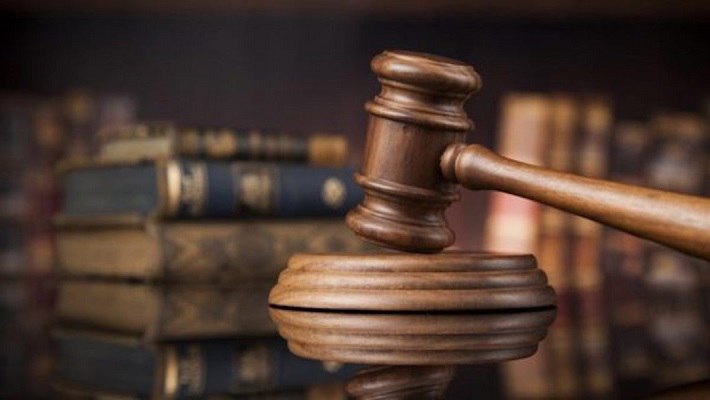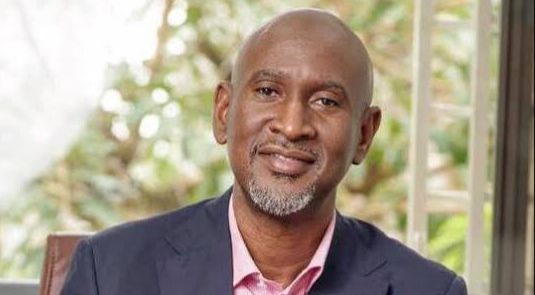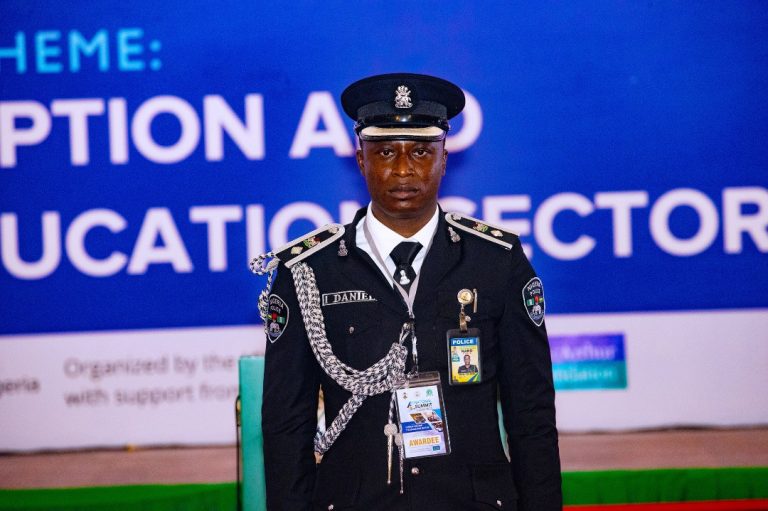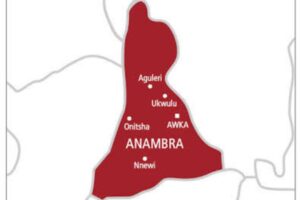Why court barred FG from retrying ex-Abia Gov, Uzor Kalu
…..EFCC kicks, vows to appeal judgement
Respite came the way of a former governor of Abia State, Orji Uzor Kalu, on Wednesday, as the Federal High Court sitting in Abuja, barred the Federal Government from retrying him, based on the N7.1billion money laundering charge the Economic and Financial Crimes Commission, EFCC, earlier preferred against him.
The court, in the judgement that was delivered by trial Justice Inyang Ekwo, relied on a verdict the Supreme Court gave on May 8, 2020, to stop further proceedings in the criminal case the EFCC instituted against Kalu and his firm, Slok Nigeria Limited.
Justice Ekwo stressed that the apex court had in its judgement, expressly ordered the retrial of Kalu’s co-defendant, Mr. Jones Udeogu, who was a former Director of Finance in Abia State.
He noted that while Udeogu was the Appellant in the said appeal that was decided by the Supreme Court, Kalu and his firm, were only cited as Respondents in the matter.
Justice Ekwo held that it would be legally wrong for Kalu and his firm to be subjected to fresh trial, when the apex court did not make such order while deciding Udeogu’s appeal.
He said the evidence before him showed that the Supreme Court only ordered the return of Udeogu’s case-file for retrial, without any mention of either Kalu or his firm.
“Can this court expand the order of the Supreme Court by ordering the retrial of the Defendants in this case”, Justice Ekwo queried, maintaining that inline with judicial hierarchy, it would be legally wrong for his court to exercise jurisdiction not given to it by the Constitution.
Moreso, he held that the Supreme Court could not have ordered Kalu’s retrial, since he never sought such relief.
“The court cannot grant relief to a party who did not seek same before it. The 1st Defendant (Kalu) neither sought nor applied for retrial. No such order was made.
“A court of law should stop where the statute stopped in the exercise of its jurisdiction. This court, by the pronouncement of the Supreme Court, is duty bound to proceed with retrial of the 2nd Respondent (Udeogu).
“The court is not a proper place for issue of sentiment, but the law”, Justice Ekwo added.
He held that there was merit in the suit Kalu filed to challenge the legal propriety of his planned re-arraignment by the EFCC.
Besides, Justice Ekwo dismissed EFCC’s counter-affidavit EFCC against Kalu’s suit on the premise that it was “pre-emptive, speculative, opinionated”, and against section 115 (1) and (2) of Evidence Act, 2011.
He held that Kalu’s case was founded on the legal principle of “autrefois convict”, which prohibits his retrial for the same offence he was previously tried for and convicted.
“The case of the Appellant must succeed on its merit and has so succeeded. The judgement of the Supreme Court is final and cannot be relitigated”, Justice Ekwo added.
He held that allowing EFCC to retry Kalu and his firm would amount to violation of section 36(9) and (10) of the 1999 Constitution, as amended, as well as section 283 of the Administration of Criminal Justice Act, ACJA, 2015.
Specifically, the court issued an order, “prohibiting the Federal Republic of Nigeria through the EFCC, her agents, officers, servants, privies and any other person or bodies deriving authority from the Federal Republic of Nigeria from retrying the Applicant on Charge No. FHC/ABJ/CR/56/07 F. R. N. VS. Orji Uzor Kalu & 2 Ors. or any other charge based on the same facts-the said Applicant having been tried, convicted and sentenced by the Judgement or this Honourable Court dated the 5th day of December, 2019, under the hand of Hon. Justice M. B. Idris, JCA.
As well as, “An order prohibiting the Federal Republic of Nigeria through the EFCC, her agents, her officers, servants, privies and any other person or bodies deriving authority from the Federal Republic of Nigeria from retrying the Applicant on charge No. FHC/ABJ/CR/56/07 F. R. N. VS. Orji Uzor Kalu & 2 Ors. or any other charge based on the same facts de novo, there being no extant Judgement or Ruling of a competent court in Nigeria mandating same”.
The court however fixed January 11, 12 and 13 for retrial of Kalu’s co-defendant, Udeogu.
Meanwhile, EFCC, through lawyer, Mr. Oluwaleke Atolagbe, vowed to appeal the judgement which it described as a miscarriage of justice.
It will be recalled that Kalu, who piloted affairs of Abia State from 1999 to 2007, was earlier found guilty and handed a 12-year jail term by the Lagos Division of the court.
The trial court convicted him alongside his firm, Slok, and Udeogu who served as Director of Finance under his administration.
EFCC had alleged that the Defendants pilfered about N7.1billion from the Abia State treasury.
However, following Udeogu’s appeal, the Supreme Court, quashed his conviction and remitted the case-file back for retrial.
A seven-man panel of justices of the apex court nullified the entire proceedings that led to Udeogu’s conviction on the ground that the trial judge, Justice Mohammed Idris, was already elevated to the Court of Appeal, as at the time he sat and delivered his judgement.
It noted that Justice Idris was no longer a judge of the Federal High Court as at December 5, 2019, the day Kalu and his co-Defendants were found guilty of the money laundering charge against them.
According to the Supreme Court, Justice Idris, having been elevated to the Court of Appeal before then, lacked the powers to return to sit as a High Court Judge.
Based on the judgement in favour of Udeogu, Kalu, who was already serving his jail term, through his lawyer, Prof. Awa Kalu, SAN, applied to be released from the Kuje correctional center.
Shortly after he was released, EFCC, moved to re-arraign him, Udeogu and his firm.
Dissatisfied with the move, both Kalu who is currently the Chief Whip at the Senate, and his firm, filed separate suits to challenge their retrial.
Kalu argued that allowing the EFCC to try him afresh on the charge and same facts upon which he was earlier convicted and sentenced, would occasion him to suffer a “double jeopardy”.
According to him, “The unassailable position of the law is that no person who shows that he has been tried by any court of competent jurisdiction or tribunal for a criminal offence and either convicted or acquitted, shall again be tried for that offence having the same ingredients as that offence, save upon the order or a competent Court.
“The trial of the Applicant having been pronounced a nullity by the Supreme Court in its judgement dated the 8th day of May, 2020 and without more, cannot entitle the EFCC to institute the same charge against the Applicant”
Canvassing reasons why his trial should not commence de-novo (afresh), Kalu, said he was earlier convicted and sentenced with respect to the same 36-count the EFCC entered charge against him.
“That following the conviction and sentence of the Applicant, the Applicant was incarcerated at the Kuje Correctional Centre where he served part of his term having spent a few days in the Ikoyi Correctional Centre”.
He noted that the Supreme Court had in the judgement it delivered on May 8, 2020, on Appeal No: SC.62C/2019, which was filed by his co-Defendant, Udeogu, held that the trial of the Appellant at the trial Court was conducted without jurisdiction.
He argued that the apex court thereafter, only ordered the retrial of the Appellant (Udeogu), without reference to himself (Kalu).
“That there is no extant Ruling or Judgement of a competent Court in Nigeria ordering the retrial of the Applicant having regard to the fact that the Supreme Court excluded the Applicant from the explicit order for retrial arising from Charge No. FHC/ABJ/CR/56/07 F. R. N. VS. Orji Uzor Kalu & 2 Ors”, Kalu argued.
Consequently, he prayed the court for an order of perpetual injunction restraining FG, through the EFCC or its agents, from further trying, harassing and intimidating him with respect to the charge or any other charge based on the same facts “as the Applicant need not suffer double jeopardy”.
Vanguard












Post Comment